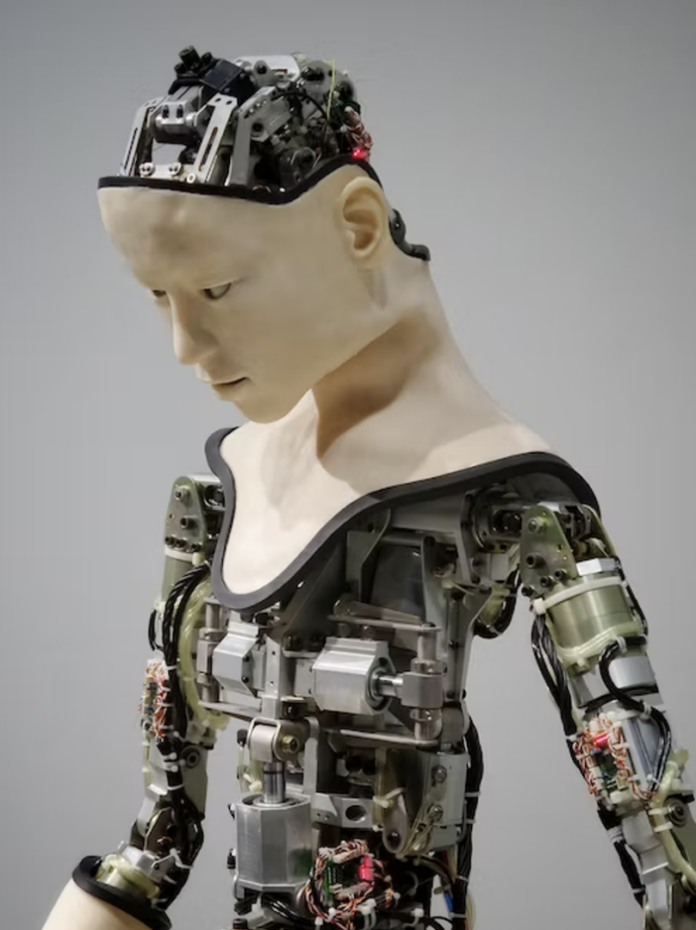Artificial Intelligence (AI) has emerged as a transformative force, revolutionizing various industries and reshaping the way we work.
As AI technologies continue to advance, it is inevitable that certain professions will experience significant changes, with some roles potentially being replaced altogether. According to a study by Open AI, the following professionals might get replaced by AI in future:
Teachers
While the human touch will always remain crucial in education, AI-powered tools have the potential to revolutionize the way we learn.
Intelligent tutoring systems can now simulate a one-on-one tutoring experience, providing interactive lessons, personalized feedback, and guidance.
One such system is Tutor AI, designed to provide educational support and guidance to learners in form of a virtual tutor. The software leverages AI technologies to simulate the role of a human tutor, delivering personalized instruction, answering questions, and offering assistance in various subjects.
Overall, AI tools represent a promising application of artificial intelligence in education, replacing traditional teaching methods and extending learning opportunities to a wider audience.
Healthcare Providers
AI has already demonstrated promising capabilities in the medical field. For instance, virtual health assistants can now use natural language processing (NLP) to provide healthcare information, guidance, and support to patients.
These AI systems are designed to interact with individuals and help them manage their health and well-being remotely. They can assess patient symptoms and provide general health information, such as explanations of medical conditions, treatment options, medication details, and preventive measures.
They can also appoint schedules, manage medication, and monitor patients remotely. The software can be accessed via mobile apps, websites, or smart devices, making them convenient and readily available resources for users seeking healthcare information and support.
Lawyers
Legal professionals often spend extensive hours researching cases and preparing documents. However, AI tools, such as natural language processing algorithms, can sift through vast amounts of legal texts, easily accessing relevant information.
Virtual legal assistants, such as Ross Intelligence and Legal Robot, are AI-powered platforms that provide legal research support, assist in drafting legal documents, and offer legal guidance based on specific questions or scenarios.
Contract analysis software can review and summarize contracts, saving lawyers valuable time. This means that in future, lawyers might only be needed to in complex legal matters that require human interpretation.
Journalists
With the advent of AI, journalism is undergoing a transformation. AI algorithms can analyze and summarize large volumes of data, enabling the generation of news reports at unprecedented speeds.
Additionally, automated news-writing platforms can produce articles on finance, sports, and weather, leaving journalists to focus only on investigative reporting and storytelling that requires human creativity and critical thinking.
Drivers
Vehicle manufacturing companies are spending tons of resources in developing driverless vehicles capable of operating and navigating without human intervention.
The vehicles use a combination of sensors, cameras, radar, lidar, and advanced artificial intelligence algorithms to perceive their environment, make decisions, and control their movements.
Companies such as General Motors and Uber have been developing autonomous vehicles and have conducted extensive testing in cities like San Francisco.
They are working towards deploying a fleet of fully autonomous ride-hailing vehicles. If successful, the vehicles might replace professional drivers in sectors such as transportation and delivery services.
Sammy Ekaran: 28-year-old Kenyan develops Africa’s first AI content generation software
Other professions
While the professions mentioned above are more susceptible to AI disruption, it is important to note that technological advancements will also impact other sectors.
For example, customer service roles can be partially automated with the help of AI chatbots, while administrative tasks in various industries can be streamlined through robotic process automation.
Therefore, It is essential for professionals to adapt and acquire new skills to remain relevant in an AI-driven world.
Embracing lifelong learning and focusing on areas where human expertise is indispensable, such as creativity, emotional intelligence, and complex problem-solving, will be key to thriving in this evolving landscape.








